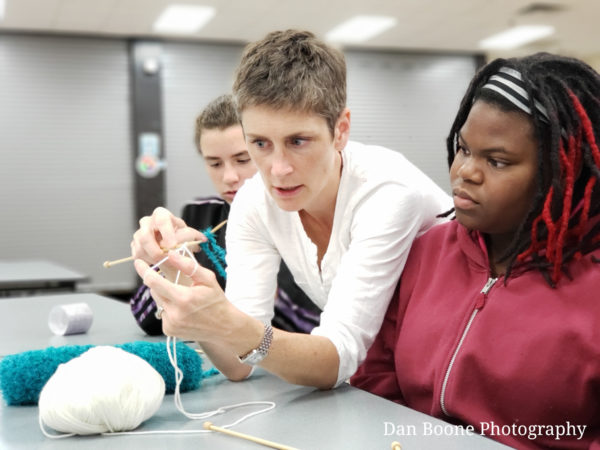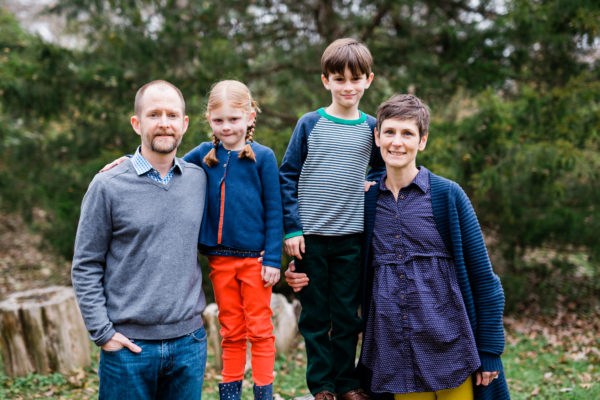Vanderbilt professor Melissa Gresalfi wants people to stop hating math.
She says math phobia is borne out of years of anxiety-ridden timed tests and memorization, with little room for learning from mistakes, practical applications or having fun.
“When you talk to people about their experiences in math, they say, ‘I hate math. I was never good at math.’ But it has little to do with anyone’s abilities and more with their experiences,” Gresalfi said. She finds this especially true with women and underrepresented minorities who may have experienced negative feelings about math early on in the classroom.
“My work is about trying to figure out how to help students develop totally different relationships with math.”
Gresalfi, an associate professor of mathematics education and learning sciences at Vanderbilt Peabody College of education and human development and the new dean of The Martha Rivers Ingram Commons, is using innovative techniques mixed with practical applications to replace anxiety with achievement.
“My work is about trying to figure out how to help students develop totally different relationships with math,” she said.
Her successful research focuses on two seemingly divergent activities: knitting and video games.
KnitLab
Gresalfi was drawn to knitting because it’s a richly mathematical craft that people, predominantly females, do throughout their lifetimes, even if these same people say they’re “bad at math.”
“Knitting is a richly mathematical activity,” said Gresalfi, who has taught thousands of kids to knit and has run numerous KnitLab workshops for teenagers, especially girls.

Learning From Mistakes
Gresalfi said she was drawn to researching the math aspects of crafting, specifically knitting, because numerous mistakes are not only accepted in these activities, they’re expected.
“Of the hundreds of knitters I’ve interviewed, they consistently said they knew that they were getting better at knitting because of their ability to see their mistakes, not because they don’t make them. Success is often about effort, not ability,” Gresalfi said.
Save the Eagle!
Gresalfi took this openness to learn from mistakes in a more high-tech direction by creating a math video game for middle school students called “Boone’s Meadow.” In this game, students try to rescue and save an injured eagle.
“There’s this real willingness to immerse themselves in the narrative of the game,” said Gresalfi, “and they’re using practical, everyday reasoning with ratio and proportion.”
Gresalfi said teachers have been thrilled with their students’ interest in a game that encourages them to problem solve as well as reinforces learning from mistakes.
“Video games have the narrative of failure. Kids know that you can never beat a good game on the first try, so failure and improvement are expected,” she said.
Life on The Ingram Commons
Gresalfi is also using her creativity and teaching experience in her role as the new dean of The Ingram Commons. She, her husband and their two young children are excited to live in the heart of The Ingram Commons and immerse themselves in campus life.
“It’s exciting to me to get to be a part of a program that has so many opportunities to learn and enrich yourself in some way, or just hang out and try at something you wouldn’t have tried before,” Gresalfi said.

She’s passionate about opening up opportunities to students on a personal level.
“When students see faculty members as approachable, then the whole college experience is going to be so much better,” she said. “And to think about the residential college program as an opportunity to not just grow your major, but you’re your adult self feels like a really awesome opportunity. “
- Learn more about The Ingram Commons and Residential Colleges
- Learn more about Vanderbilt Peabody College of education and human development
- Learn more about visiting and attending Vanderbilt University